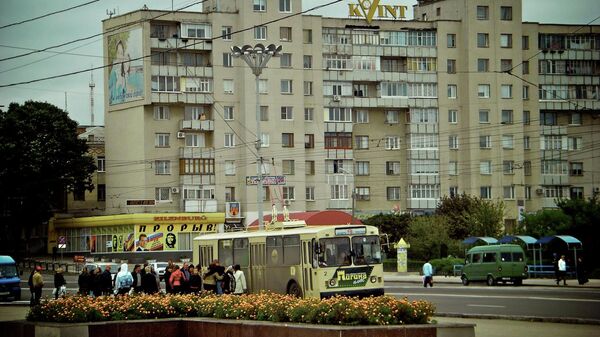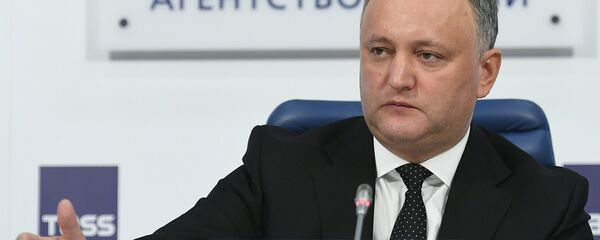TIRASPOL (Sputnik) – Krasnoselsky stated that the proclaimed course is a will of the people living in Transnistria.
“Our independence serves as a guarantee of our security. Political issues are currently less relevant due to the myriads of other problems that should be resolved immediately. The nation voted in favor of independence with a consecutive unification with Russia back in 2006, and I am not willing to change this policy,” Krasnoselsky said after the meeting with Austrian Foreign Minister and Organization for Security and Co-operation in Europe (OSCE) Chairperson-in-Office Sebastian Kurz.
Earlier in the day, Moldova's Prime Minister Pavel Filip stated that the issue of defining the details of the special legal status of the self-declared republic Transnistria as a part of Moldova will be a top priority in 2017 for Chisinau.
He noted that Chisinau opposed federalization and considered it "not a good decision."
Also on Saturday, the OSCE chairperson expressed support to the idea of granting a special legal status to Transnistria, hoping that it would help to settle the Transnistrian crisis.
Transnistria, a region with a predominantly ethical Russian and Ukrainian population, is a self-proclaimed republic that seceded from the Soviet Republic of Moldova in 1990 fearing possible reunion with Romania. The separation led to a conflict known as "The Transnistria War" that ended in a ceasefire declared on 21 July 1992, but the conflict remains unresolved.
In 2006, more than 90 percent of the Transnistrian population voted at a referendum in favor of the republic’s independence from Moldova with its consecutive unification with Russia.



